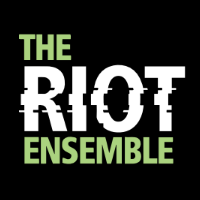A few moments with Richard Causton
We have a great season of concerts coming up in 2014 – the first of which, Number Ones, features ‘first pieces’. We love the idea of taking a look back at where some of today’s composers began their journey, and to listen for the ideas that have either grown more important to them or faded away over time.
 Richard Causton is well known as a technically precise and inventive composer. Now University Lecturer in Musical Composition at Cambridge, his recent work Twenty-Seven Heavens was commissioned by the European Youth Orchestra and premiered at the Amsterdam Concertgebouw. Richard’s early career was marked by an incredible pace of impressive awards, such as a Fast Forward composition award (1994), the ‘Nuove Sincronie’ (1996), an SPNM George Butterworth Award (1995) and a Mendelssohn Scholarship (1997).
Richard Causton is well known as a technically precise and inventive composer. Now University Lecturer in Musical Composition at Cambridge, his recent work Twenty-Seven Heavens was commissioned by the European Youth Orchestra and premiered at the Amsterdam Concertgebouw. Richard’s early career was marked by an incredible pace of impressive awards, such as a Fast Forward composition award (1994), the ‘Nuove Sincronie’ (1996), an SPNM George Butterworth Award (1995) and a Mendelssohn Scholarship (1997).
Before all of that, though, came Richard’s Threnody – written in 1991 – for soprano, 2 clarinets and piano. This piece will actually be my performing premiere (as a pianist) with The Riot Ensemble, and it was my pleasure to take a few moments to discuss Threnody with Richard this past weekend.
AHN: Richard, thanks so much for taking the time to sit down with us. Threnody is – as with many pieces in this concert – your first published work. I’m sure, though, that you’ll have written many pieces before this ‘first’ one. How does a composer decide when to start keeping works in their catalogue? Have you kept every piece written after Threnody in your ‘repertoire’?
RC: At a certain point there comes an unmistakable feeling of rightness that makes you realise you’ve written your first real piece of music. This piece is the first thing you willingly make public and put your name to; and it remains with you for the rest of your life. It has to do with reaching – or getting close enough to – what it is you were aiming for previously but weren’t able to achieve. In this particular case it is also bound up with the text I set to music, which is beautifully succinct and could be a sort of credo.
Since Threnody I’ve kept most of what I’ve written, barring some occasional, very short pieces.
AHN: What is it like to look back on a work you wrote so long ago? Do you change your pieces after they are performed? Do you find new things in a piece after returning to it after so long?
RC: It’s always interesting looking back at pieces written some time back. You have moved on, your preoccupations are now different, and yet the earlier piece was the best possible embodiment or realisation of those particular ideas at the time it was written. And as such, it has an authenticity which could be destroyed if you attempted to ‘correct’, or revise the piece much later.
AHN: Looking back from where you are now, do you recognise elements of a ‘personal style’ in Threnody?
RC: Yes – the essentials have not changed, which is why the feeling at the time of having written a real, authentic piece of music was so strong.
AHN: You currently teach at Cambridge, and have taught a number of young composers. Do you think it is important for composers to develop a personal style? Do you have advice on how a young composer can achieve or go about this? And when does the idea of a ‘personal style’ simply give way to self-repetition?
Of course writing music now is completely different from a few hundred years ago – music of whatever kind is now so available, so easy to get hold of, that composers are required to be original, which was not necessarily the case previously. So if there is still any demand for music at all, it is demand for a genuine voice which has integrity and tells us something we did not already know. Luckily, we are all different and a personal style can found through listening – deeply, inwardly as well as outwardly. And self-repetition can be avoided too if composers have the courage to let new ideas into their imagination.
AHN: What’s in store for you in 2014?
RC: I am currently working on a new piece for the Bath Festival for Pipers Three oboe trio, after which I will be writing a piano quintet for the Nash Ensemble. And my wife is expecting our second child any day now, so there should be plenty to do!
AHN: Well that’s extremely exciting news! Thanks so much for your time Richard, and best wishes for a successful 2014!
RC: Thank you!

